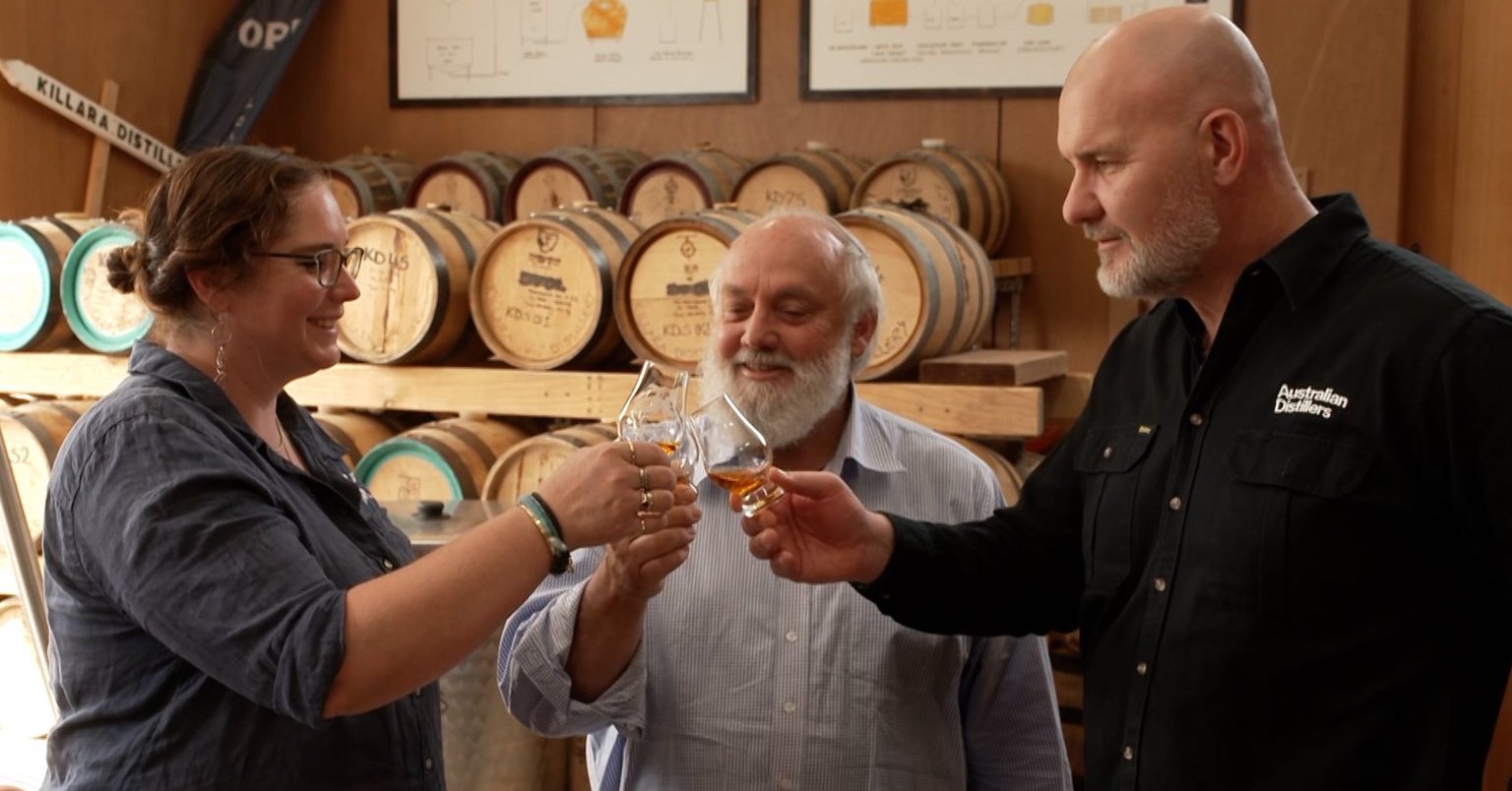
The Federal Government can deliver an economic windfall for Regional Australia by investing to grow exports of Australian craft spirits, says whisky pioneer Bill Lark.
Lark, who founded Tasmania’s Lark Distillery in 1992, says Australian spirits are ripe for an export boom similar to that experienced by the wine industry a generation ago.
“I have no doubt that Australian whisky can become globally recognised and sought after, just like Japanese whisky has over the last ten years,” he says.
“This would be transformative for Tasmania and other regional communities where many of Australia’s 700-plus distilleries are located.”
Lark whisky and gin are now available in Singapore, Indonesia, Malaysia and the Philippines, after the company embarked on its export journey last year.
Lark CEO Satya Sharma, who joined the business in 2023 following ten years with Scotch whisky company William Grant & Sons, is bullish on the export potential of Australian spirits.
However, he says it will be an uphill battle for individual distillers to grow sales abroad without support and coordination by the Federal Government.
“Currently, each distiller is going out to each market on their own, trying singlehandedly to build the Australian spirits category,” he says.
“What we are lacking is a megaphone, in the form of Federal Government investment to help raise awareness of the innovative liquid and authentic stories that we know will resonate with spirits consumers overseas.”
Tasmanian Whisky & Spirits Association president Kristy Lark-Booth says Tasmania now has 77 distilleries, the highest number per capita of any Australian state.
“Our distillers are making spirits that are truly world class, from whisky to gin, vodka, liqueurs, brandy and more,” she said.
“We have huge ambitions to grow our exports and create many additional jobs for Tasmanians in manufacturing, tourism and hospitality.”
Excise curtailing spirits export growth
Spirits & Cocktails Australia chief executive Greg Holland said Australia currently ranks 29th globally for spirits exports, with total revenue of $112 million in FY23.
“This compares with sixth-place for Australian wine, which is a $2.1 billion export industry, highlighting the differential treatment of spirits versus wine in this country,” he said.
“Spirits manufacturers are being held back by a tax that is already five times higher than that of wine, with another hike due on 3 February.”
Australian Distillers Association chief executive Paul McLeay said the industry’s export ambitions cannot wait for wholesale excise reform.
“The Government can provide immediate support for our industry by working with us to accelerate spirits exports,” he said.
“Not only will this deliver on its trade diversification goals, but it will also support the current economic priorities of growing domestic manufacturing and increasing employment opportunities, particularly in the regions.”
Spirits can diversify Australian trade
McLeay said one in four jobs in Australia are trade related, contributing 31 per cent towards Australia’s total economic output.
“Recent experience tells us it is fraught for Australia to ‘put all its eggs in one basket’ when it comes to trade, whether that is over-reliance on individual export markets or industry sectors,” he said.
“Spirits by their very nature are ideally suited to exporting, with an almost indefinite shelf life, and Australian distillers have a global reputation for the quality and distinctiveness of their products.
“This has been confirmed, once again, by a multitude of prestigious award wins over the last 12 months.”
Analysis by economic firm Mandala Partners has demonstrated that Australian spirits exports could grow to reach $1 billion by trade value.
“The Federal Government must act now or Australian spirits will lose market share to other nations that have already recognised the urgency of these trade opportunities,” said McLeay.
ENDS.
Background information:
Tasmanian spirits industry
- Tasmania has 80-plus distilleries, the largest number per capita of any state or territory.
- Spirits manufacturing supports 2,300 jobs in Tasmania and contributes $300 million in added value to the state economy.
- 68% of Tasmanian manufacturers operate a distillery door tourism experience (Tasmanian Distilled Spirits Industry Blueprint, 2022).
- 41% of Tasmanian distilleries are already exporting their products (Tasmanian Distilled Spirits Industry Blueprint, 2022).
- Single malt whisky is by far the most widely produced spirit category in Tasmania. This contrasts starkly with the mainland, where production is led by ready-to-drink spirits, rum, vodka and gin.
Australian spirits manufacturing
- Australia’s spirits industry has the potential to become a $1 billion export powerhouse by 2035, according to modelling by economics firm, Mandala Partners.
- This is in addition to the industry’s current $15.5 billion economic contribution and the 100,000 jobs already supported throughout the industry’s supply chain.
- Australia exported $112 million in spirits in 2022 (29th in the world by trade value), compared to $2.1 billion in wine exports (6th in the world).
- There are now 700-plus distilleries in Australia, 50% of which are in regional areas.
- Just 17% of spirits manufacturers currently export, but 40% of businesses are currently exploring export opportunities.
Media contact:
James Atkinson, Media & Communications Manager
Email: jatkinson@spiritsandcocktails.au | Mobile: +61 416 870 827
